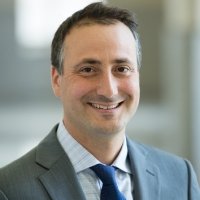Gross Human Rights Violations and Impunity in Nicaragua: Report by Independent Experts
Nicaragua's current crisis erupted in April 2018 when public protest was met with a severe crackdown by the government. In light of the ensuing violence, the government of Nicaragua agreed with the Inter-American Commission on Human Rights and the Organization of American States (OAS) to send a group of independent international experts, known as the GIEI, to examine the six-week period between April 18 and the end of May to determine who was responsible for the violence. The GIEI had hoped to present its findings publically in Nicaragua on December 20, but was prohibited from doing so by the government and required to leave the country.
The Wilson Center's Latin American Program and the Seattle International Foundation hosted a presentation and discussion with two members of the GIEI on their findings and recommendations for dealing with Nicaragua's widening human rights crisis.
Selected Quotes
(original Spanish)
Claudia Paz y Paz
“No se trató de hechos aislados. No se trató de la iniciativa de un oficial de policía. Tuvieron que ser acciones ordenadas y coordinadas desde la más alta jerarquía que en Nicaragua la ausenta el presidente de la república. Daniel Ortega tiene el mando directo de la policía nacional en Nicaragua.” “They were not isolated events. They were not the initiative of a police officer. They had to be actions ordered and coordinated from the highest level of the hierarchy, which, in Nicaragua, is attributed to the president of the republic. Daniel Ortega has the direct command of the national police in Nicaragua." “Para nosotros el Estado de Nicaragua ha infringido sistemáticamente su deber de debida diligencia respecto a la investigación de los casos de muertes violentas ocurridas del 18 de abril al 30 de mayo. El sistema de justicia ha entonces actuado como una pieza más del esquema de violación de los derechos humanos a través de procurar la impunidad de estos graves crímenes, y también a través de la criminalización de ciudadanos y ciudadanas que han participado en las protestas.” “For us, the State of Nicaragua has systematically violated its duty of due diligence regarding the investigation of cases of violent deaths that occurred between April 18 and May 30. The justice system, then, has acted as one more piece of the scheme of human rights violations by seeking impunity for these serious crimes, and also through the criminalization of citizens who have participated in the protests."
Amerigo Incalcaterra
“Nos concentramos en las muertes principalmente y tratamos de ver como se habían realizado estas violencias, y así pudimos de alguna manera determinar cierto comportamiento del Estado, que el informe lo dice claramente, hay conducta que de acuerdo al derecho internacional de los derechos humanos y el derecho internacional penal configuran crímenes de lesa humanidad.” "We mainly focused on the deaths, and we tried to see how these acts of violence had been carried out, and thus we were able to, in some way, determine certain behaviors of the state, which the report clearly states. There is behavior that, according to international human rights law and international criminal law, amounts to crimes against humanity.” “Es un gobierno que sistemáticamente no ha permitido la luz o la vía pública de la protesta pacífica para reclamar. El control de la calle es algo muy fuerte dentro del régimen sandinista.” “This is a government that has systematically prohibited the light or public way for peaceful protests. Controlling the streets is something very strong within the Sandinista regime.”
Introduction

Moderator

Director of Policy and Strategic Initiatives, Seattle International Foundation
Panelists
Hosted By

Latin America Program
The Wilson Center’s prestigious Latin America Program provides non-partisan expertise to a broad community of decision makers in the United States and Latin America on critical policy issues facing the Hemisphere. The Program provides insightful and actionable research for policymakers, private sector leaders, journalists, and public intellectuals in the United States and Latin America. To bridge the gap between scholarship and policy action, it fosters new inquiry, sponsors high-level public and private meetings among multiple stakeholders, and explores policy options to improve outcomes for citizens throughout the Americas. Drawing on the Wilson Center’s strength as the nation’s key non-partisan policy forum, the Program serves as a trusted source of analysis and a vital point of contact between the worlds of scholarship and action. Read more
